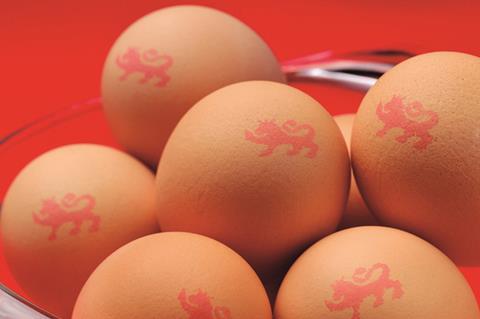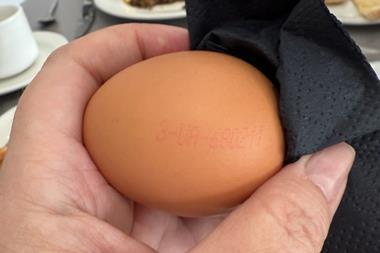
There is an increasing disconnect in the UK food system between consumer perception and the often less reassuring reality.
Research by the British Egg Industry Council (BEIC) has found most shoppers assume the eggs, meat and dairy products on supermarket shelves, and in processed foods, are produced by British farmers to high safety and welfare standards. Too often that assumption is misplaced. Many of these products or their ingredients are imported.
Long international supply chains and imported ingredients mean provenance and production standards are not always clear, creating confusion and risks for consumers and businesses alike. As the UK government prioritises trade deals over regulatory alignment, there is growing industry concern this misalignment between expectation and reality will deepen.
Public trust
We’ve seen before how supply chain failures can shake public trust. The horsemeat scandal starkly illustrated what happens when traceability fails. Have we learned the lessons or do the vulnerabilities remain?
Sourcing ingredients from countries with weaker oversight or less stringent standards leaves the door open to food safety breaches, fraud, and loss of consumer confidence. Food safety professionals are acutely aware of these risks but, alarmingly, that concern is not always shared by procurement departments.
Take eggs, for example. Shell eggs and products produced under the British Lion Code of Practice are rightly seen as the benchmark for safety, quality and traceability. But if imports of processed eggs are incorporated in ready meals, quiches or sandwiches, that transparency often disappears. Unless British Lion egg products are used, traceability can become murky.
Worryingly, the volume of imported eggs is increasing, including those from countries such as Ukraine where conventional battery cages are still used (banned in the UK in 2012). These imported eggs can end up in foods labelled or marketed as British. This undermines consumer trust and erodes the competitiveness of UK producers who have invested heavily in higher welfare. Ukraine is currently pushing for an extension of its tariff-free access to the UK market, which could be devastating for British egg producers and consumers alike.
Inconsistent standards
And this is not unique to eggs. Across meat, dairy and other ingredients, inconsistencies in international standards create a patchwork of risk. Packaging can imply British provenance, while key components are sourced from overseas systems that wouldn’t meet UK standards.
Many food businesses champion British, but they have a moral and commercial responsibility to ensure their sourcing truly reflects those claims. Consumers have a right to trust that food labelled as British upholds British standards – especially when those standards are a selling point.
To their credit, UK supermarkets exclusively source and stock British Lion shell eggs, recognising the value of high standards from domestic producers. The next step is to apply the same scrutiny to all processed foods containing eggs. Aligning procurement practices with consumer expectations will help safeguard the reputations of both brands and retailers.
Sourcing to British standards is more than a marketing tool: it’s an investment in the credibility of our food system. It protects trust, supports British agriculture and ensures the UK remains a leader in food safety and animal welfare at a time when British farming is under increasing pressure.
Now more than ever, transparency must be non-negotiable.
Nick Allen is CEO of the British Egg Industry Council



















No comments yet